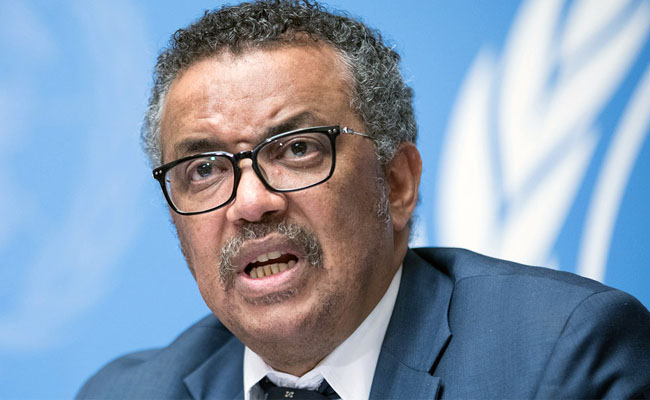Just 60 days after the genetic sequence of COVID-19 was shared by China, the first vaccine trial has begun, the UN health chief said on Wednesday, calling it “an incredible achievement” and urging the world to maintain “the same spirit of solidarity” that has helped fight Ebola.
Updating journalists at the regular press briefing in Geneva, UN World Health Organization (WHO) Director-General Tedros Adhanom Ghebreyesus said that more than 200,000 cases of coronavirus have been reported and over 8,000 deaths.
Media briefing on #COVID19 with @DrTedros. #coronavirus https://t.co/MohOl6pDDJ
— World Health Organization (WHO) (@WHO) March 18, 2020
“This large, international study is designed to generate the robust data we need to show which treatments are the most effective”, said the WHO chief. “We have called this study the SOLIDARITY trial”.
And to date, Argentina, Bahrain, Canada, France, Iran, Norway, South Africa, Spain, Switzerland and Thailand have confirmed that their participation.
“To suppress and control epidemics, countries must isolate, test, treat and trace”, he said, otherwise “transmission chains can continue at a low level, then resurge once physical distancing measures are lifted”.
‘Uncharted waters’
One week since COVID-19 was declared a pandemic, cases continue to soar, roughly half the world’s student population is not attending school, parents are working remotely when possible, borders have been closed and lives have been upended.
“These are uncharted waters for all of us”, said Henrietta Fore, Executive Director of the UN Children’s Fund. “At UNICEF, we are fighting a new virus, debunking myths and battling misinformation, all while looking after the well-being of our staff and our own families”.
UNICEF is helping to prevent the spread of the virus among communities in the affected countries by sharing accurate information on how to keep families safe and mitigating the impact of the outbreak on children’s access to health, education and social services.
“Now more than ever, we count on our donors to continue supporting our mission for those with nothing and no one – despite these difficult times”, Ms. Fore said.
Meanwhile, the Secretary-General’s spokesperson announced that he would conduct the daily press briefings remotely as the UN Security and Safety Service in Vienna reported today that 95 per cent of staff there were telecommuting.
Coronavirus Portal & News Updates
Readers can find information and guidance on the outbreak of the novel coronavirus (2019-nCoV) from the UN, World Health Organization and UN agencies here.For daily news updates from UN News, click here.
Home: ‘Life or death situation’
At the same time, as Governments worldwide are relying on people to stay home to prevent the spread of COVID-10, a UN expert shined a light on those without a home, saying that they must be ensured access to adequate housing.
“Home has rarely been more of a life or death situation”, said Leilani Farha, UN Special Rapporteur on adequate housing, adding that it has become “the front line defense against the coronavirus”.
She explained that some 1.8 billion people globally live in homelessness and grossly inadequate housing, often in overcrowded conditions, lacking access to water and sanitation – making them particularly vulnerable.
The expert urged States to “take extraordinary measures” to secure the right to housing for all to protect against the pandemic.
A few countries have already stepped up, including by putting moratoriums on evictions or deferring mortgage payments for those affected by the virus while others have increased access to sanitation and emergency shelter spaces for the homeless.
“By ensuring access to secure housing with adequate sanitation, States will not only protect the lives of those who are homeless or living in informal settlements but will help protect the entire world’s population by flattening the curve of CV19,” the UN expert concluded.
